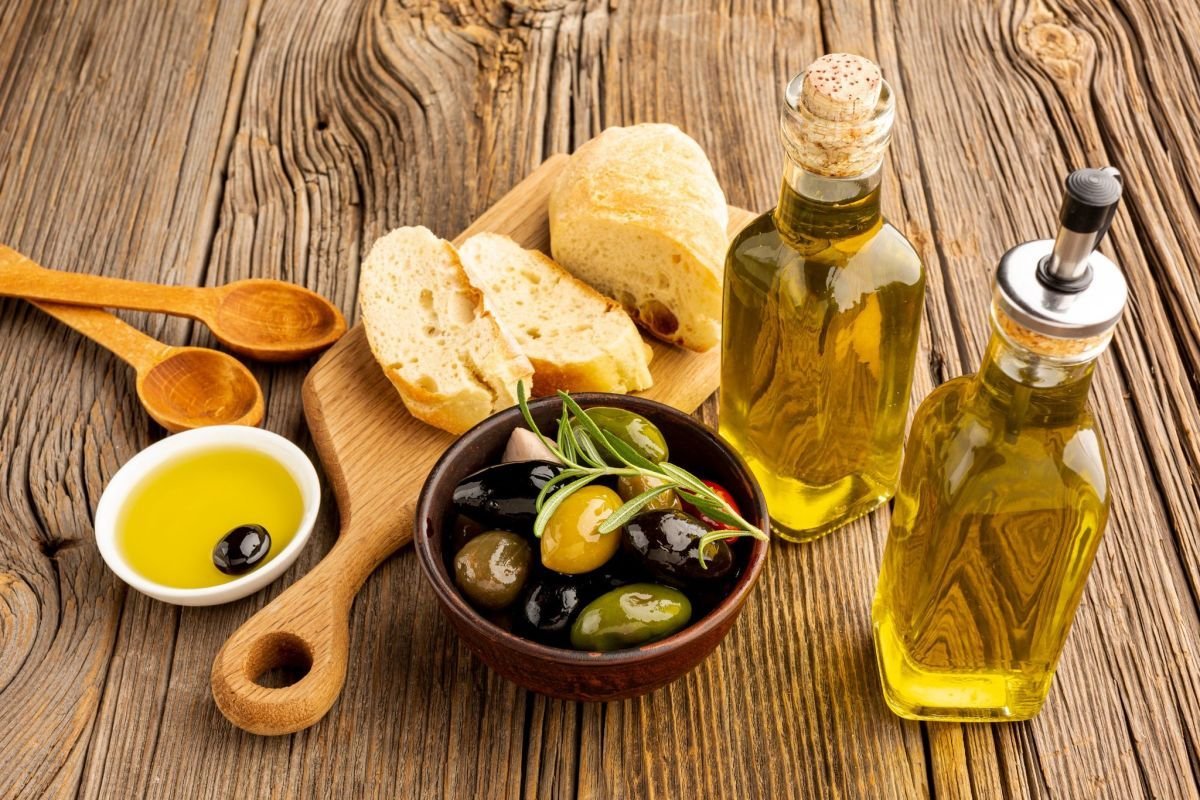
7 foods reduce the risk of chronic kidney disease 0
Olive oil does not contain sodium, potassium and phosphorus, which is good for people with kidney disease.
Olive oil does not contain sodium, potassium and phosphorus, which is good for people with kidney disease.

Whole grains help people with chronic kidney disease excrete waste regularly and control blood pressure, cholesterol and blood sugar levels.
Whole grains help people with chronic kidney disease excrete waste regularly and control blood pressure, cholesterol and blood sugar levels.

Garlic and onions contain allicin, which helps lower blood pressure and improve kidney dysfunction.
A 2017 study by Panamericana University, Mexico, showed that allicin helps reduce blood pressure in people with chronic kidney disease.
Garlic and onions contain allicin, which helps lower blood pressure and improve kidney dysfunction.
A 2017 study by Panamericana University, Mexico, showed that allicin helps reduce blood pressure in people with chronic kidney disease.

Squash is low in potassium, on average 45 g of cooked squash contains 91 mg of potassium, 11 mg of phosphorus and 4-11 mg of carbohydrates.
This squash also provides beta carotene (a precursor to vitamin A), vitamin C and health-promoting phytochemicals such as lutein, zeaxanthin and beta-cryptoxanthin to help control inflammation.
Squash is low in potassium, on average 45 g of cooked squash contains 91 mg of potassium, 11 mg of phosphorus and 4-11 mg of carbohydrates.
This squash also provides beta carotene (a precursor to vitamin A), vitamin C and health-promoting phytochemicals such as lutein, zeaxanthin and beta-cryptoxanthin to help control inflammation.

Green beans are good for people with chronic kidney disease because they have low to moderate amounts of potassium.
A 2023 study by Zhengzhou University, China, shows that increasing soy intake can reduce the risk of chronic kidney disease in adults.
Green beans are good for people with chronic kidney disease because they have low to moderate amounts of potassium.
A 2023 study by Zhengzhou University, China, shows that increasing soy intake can reduce the risk of chronic kidney disease in adults.

Vegetables that grow underground include carrots, potatoes, sweet potatoes, celery root, ginger, turmeric, beets, and yams that provide nutrients such as vitamins A, B, C, E, K,
Vegetables that grow underground include carrots, potatoes, sweet potatoes, celery root, ginger, turmeric, beets, and yams that provide nutrients such as vitamins A, B, C, E, K,
Strawberries are low in potassium, an average of 45 g of strawberries contains 130 mg of potassium.
Strawberries are low in potassium, an average of 45 g of strawberries contains 130 mg of potassium.
Huyen My (According to Eat This, Not That, Kidney.org, Health.com)Photo: Freepik
Readers submit urological questions here for doctors to answer



